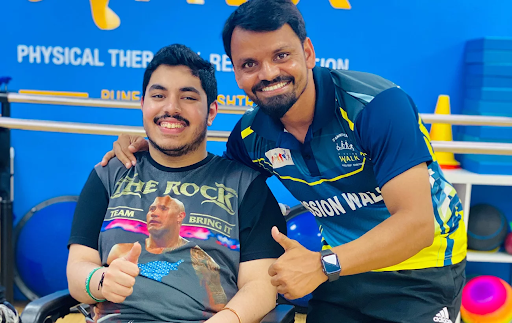Understanding of Multiple Sclerosis (MS) | Mission Walk
 Physiotherapy for Multiple Sclerosis
Physiotherapy for Multiple Sclerosis
Multiple sclerosis (MS) is a condition that harms the brain and spinal cord. The disease can cause many symptoms, such as problems with arm and leg movement, vision, balance, and sensation. This condition is lifelong, sometimes resulting in severe disability. Occasionally, it can be mild, though.
MS occurs when an attack on the myelin is a protective matty material that wraps around the nerve fibres. Without this protection, the nerve fibres get damaged and do not work as they should, resulting in the brain failing to send signals through the body appropriately. So you get MS symptoms such as:
* trouble walking
* muscle weakness or spasms
* feeling tired
* numbness and tingling
* issues with bladder and bowel control
* blurred or double vision
* sexual problems
* problem focusing or remembering
* depression
* pain
The condition usually starts with mild multiple sclerosis symptoms. These signs may or may not become more serious over time.
The signs of MS depend on the part of the central nervous system that got affected and the amount of damage that has occurred.
There are 3 types of Multiple Sclerosis, namely:
1. Relapsing-Remitting MS (RRMS) is the most prevalent form of multiple sclerosis, with 3 out of 4 people experiencing this stage. With RRMS, new symptoms show up and existing symptoms get worse over days or weeks, and even months. RRMS, then, is followed by partial or complete recovery, but then another relapse happens.
For some people, these relapses get more serious, and the disability does not disappear. They have declining health; this type is referred to as Secondary Progressive MS (see #3 below).
2. Primary Progressive MS (PPMS) is where 1 or 2 in 10 people get diagnosed. These patients usually observe that their symptoms become worse gradually.
3. Secondary Progressive MS (SPMS) is experienced by most people with RRMS type of multiple sclerosis, as explained in #1 above.
Right now, there is no cure for MS. However; several multiple sclerosis treatment options can help improve how a patient feels and keep the body working well. Drugs may be prescribed to slow down the course of the disease, ease your symptoms, prevent or treat attacks, or help you manage stress.
You may be given a steroid to shorten the MS attacks and make them less severe. Other medications, such as muscle relaxants, tranquilizers, or Botox, are also worth trying to ease muscle spasms and treat other MS symptoms.
The best medicine for your condition depends on your type of Multiple Sclerosis. Your doctor and other health professionals can recommend the right treatment for your particular situation.
Physiotherapy is often advised to people living with MS, especially when there is a specific problem or the present symptoms significantly affect day-to-day functioning, mobility, and independence. Whatever your level of disability, physiotherapy can help. It can also be valuable when recovering from a relapse or some physical symptoms progress.
Physiotherapy can help you find and perform exercises best suited to your specific needs and abilities. The Mission Walk physiotherapists may suggest exercises that focus on specific areas of your body or allow you to manage the effects of MS precisely.
For a consultation about multiple sclerosis, or if you need more information about the condition and physiotherapy, don’t hesitate to please get in touch with Mission Walk Physiotherapy and Rehabilitation Centre in Hyderabad. We will eagerly be waiting for your call. Our physiotherapists are pros in their specific field of specialization and hence will offer you specialized treatment. Their exercises will be specifically directed to the part where you have got the injury.


Comments
Post a Comment